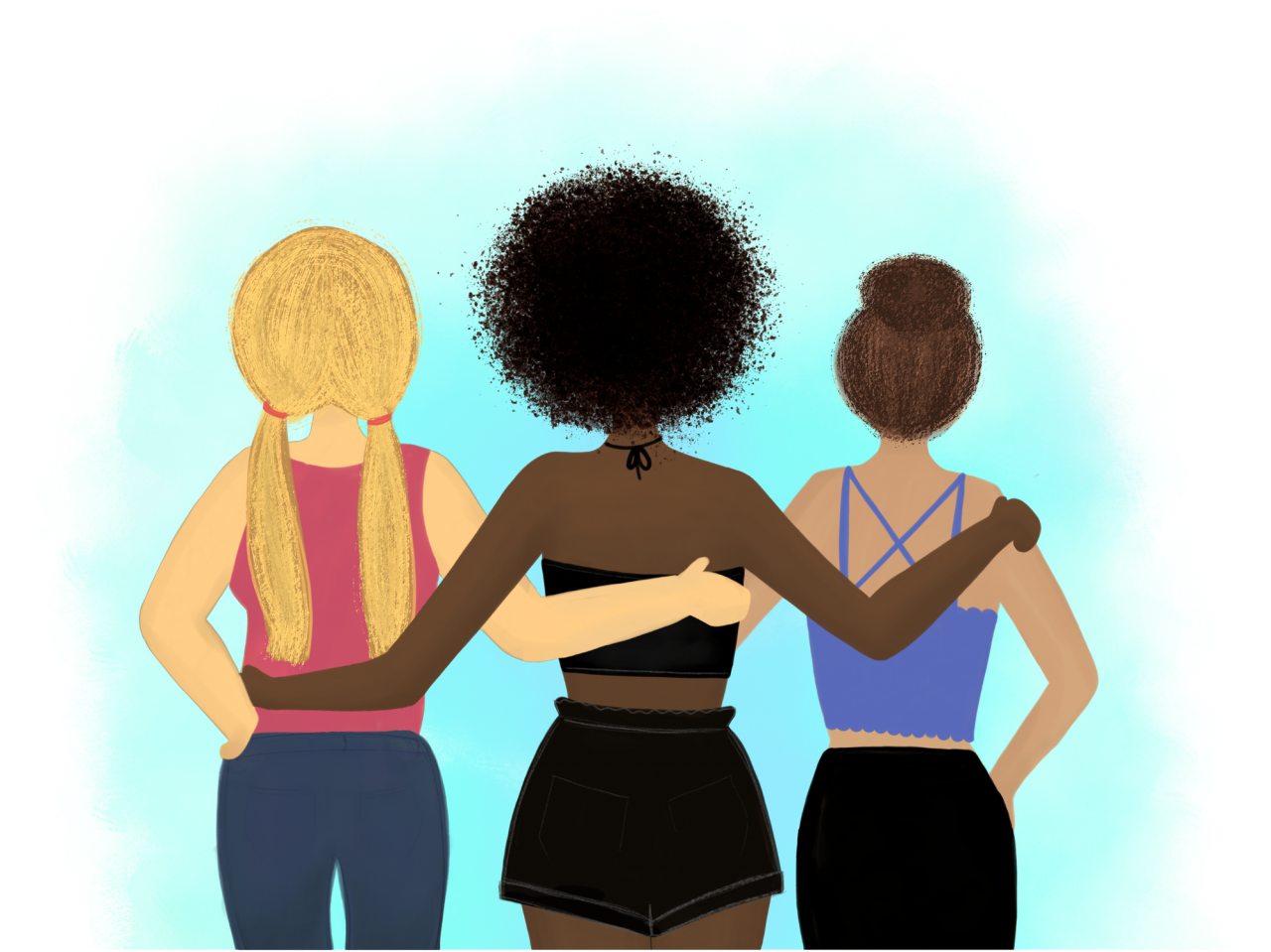Illustration by Genevieve Humphreys
In 2017, actress Alyssa Milano tweeted, “If you’ve been sexually harassed or assaulted, write ‘me too,’” and brought the Me Too movement to the general public. But what many people don’t know is that the fight against sexual assault in the workplace and beyond has been been fought by black women since the decades following the civil rights movement.
“We can’t wait for white folks to decide that our trauma is worth centering on,” said activist Tarana Burke, the founder of the Me Too movement in a 2018 interview with The New York Times. Burke began using the phrase “me too” in Myspace forums as early as 2006 and started a campaign giving women of color space to share their survival stories, but the term was popularized by the social media movement of 2017.
An article in The Nation details the histories of the women that came before Me Too: in 1975, Carmita Wood quit her job at Cornell University to escape the sexual violence of her boss and was denied unemployment benefits on the basis of the resignation (her assault was dismissed as “personal reasons”), and with the help of others — including Eleanor Holmes Norton — she went on to found Working Women United, which sought to expose the widespread issue of sexual harassment; in 1976, Diane Williams’ court case against her boss ruled quid-pro-quo harassment as sexual discrimination; in 1981, Sandra Bundy’s case proved that sexual harassment cases could be brought under Title VII without loss of employment. These women’s bravery and sacrifice made possible the 1986 Supreme Court ruling that sexual harassment violates Title VII of the Civil Rights Act, thanks to the courage of Michelle Vinson, who came forward after being raped repeatedly over three years at her job at a bank by her boss.
These women — Carmita Wood, Eleanor Holmes Norton, Diane Williams, Sandra Bundy and Michelle Vinson — all paved the way, not only for the Me Too movement, but also for widespread reform on sexual assault law by getting sexual assault recognized as a civil rights problem and not just individual cases that supervisors and government officials dismissed as “personal” problems. These women are due the respect warranted by their unwavering activism in a sociopolitical climate that discriminated (and continues to discriminate) against women of color.
As Tarana Burke aptly stated in the aforementioned New York Times interview, the Me Too movement at its core is about survivors receiving support in their healing process. Although the Me Too movement has its roots in social media and public forums, activist Tarana Burke expresses frustration in her interview with The New York Times that reports and stories of sexual misconduct publicized are still disproportionately white. There is an urgent need for us to reexamine how we got to this place where black women’s voices are not heard in a movement advanced by civil rights activists fighting for their very right to be. Complicated dynamics surrounding intersectionality in social movements are perpetuated by this country’s long standing history of marginalization of black women from mainstream media. The lack of public recognition of the strong women such as Sandra Bundy and Carmita Wood and their role in the movement decades before most of us knew of Me Too contributes to the current state of this injustice, which has left the founder of the movement feeling that “this is our [that of black women] reality, but it always has been.”
I am absolutely not the first to point out that one of Trinity’s major shortcomings is a shocking lack of racial diversity in students and faculty, nor will I be the last. As the Outreach Chair of theCoalition for Sexual Justice, we have to understand that prioritizing intersectional and inclusive dialogues surrounding issues of sexual assault and campus climate is important and necessary for us to meaningfully move forward. I hope that this upcoming month can be a starting point for us all to honor the women that got us where we are today while recognizing our room for further growth.







Liz G • Apr 28, 2020 at 11:50 pm
Very eye opening and useful. On the movement’s homepage its difficult to find mention of Tarana Burke. I’ll think twice before supporting a social cause, especially if it may include black women.
Ashley Young • Mar 28, 2020 at 4:17 am
This was very well written, informative, and helpful for my presentation on the Me Too movement, thanks!